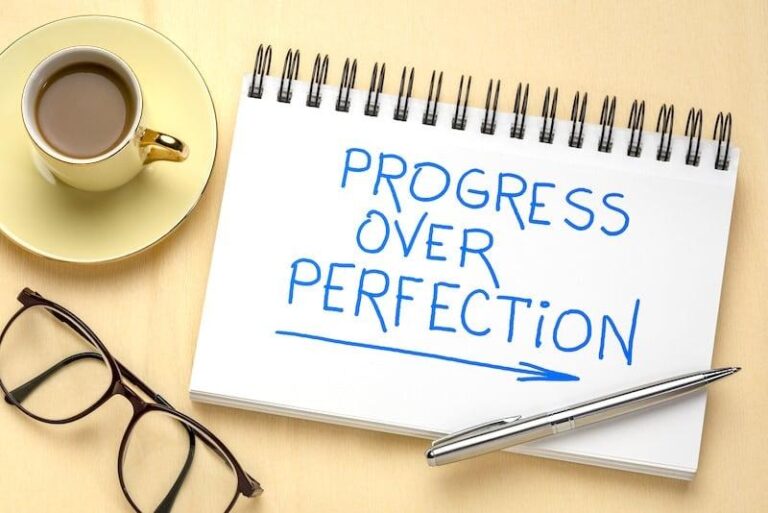In an era defined by self-improvement mantras and relentless personal growth, a growing conversation questions the value of constantly striving to upgrade ourselves. The latest discourse, featured in Psychology Today, challenges the pervasive culture of self-enhancement, asking whether our obsession with becoming “better versions” of who we are may actually be undermining our wellbeing. As societal pressures to optimize every aspect of life mount, experts weigh in on the psychological impact of this pursuit-and whether embracing acceptance over improvement might offer a healthier path forward.
The Pressure to Constantly Improve How It Affects Mental Health
In today’s hyper-competitive world, the relentless drive to optimize every aspect of ourselves can lead to a silent crisis. The expectation to always be better, faster, or smarter creates a pressure cooker environment where mental health often takes a back seat. This continuous self-improvement cycle, while intended to inspire growth, paradoxically fuels anxiety, burnout, and feelings of inadequacy. Experts warn that the inability to accept imperfection fosters a chronic dissatisfaction that undermines overall well-being.
Several mental health professionals highlight common consequences linked to this relentless pursuit:
- Increased stress levels resulting from unrealistic self-expectations
- Heightened risk of depression due to persistent comparison and failure to meet personal goals
- Social isolation as individuals become hyper-focused on self-improvement at the expense of relationships
| Impact | Symptoms | Suggested Support |
|---|---|---|
| Stress | Restlessness, headaches | Meditation, time management |
| Anxiety | Rapid heartbeat, insomnia | Therapy, breathing exercises |
| Burnout | Exhaustion, cynicism | Work-life balance, counseling |
Rethinking Self-Improvement Through the Lens of Acceptance
Modern self-improvement culture often equates personal value with constant progression-endless tweaks, upgrades, and hacks designed to sculpt an ideal self. Yet, this relentless pursuit can foster frustration, burnout, and an underlying message: who we are today is never quite enough. Psychology now urges a paradigm shift, emphasizing acceptance over alteration. Instead of chasing a future version of ourselves, embracing our existing thoughts, emotions, and quirks might unlock deeper growth. This mindset encourages a kinder, less judgmental relationship with ourselves, transforming self-improvement from a battle into a journey of understanding and compassion.
- Celebrate imperfections: Recognizing flaws as vital parts of human complexity.
- Mindful presence: Cultivating awareness rather than future-focused striving.
- Intrinsic worth: Valuing self beyond accomplishments or external validation.
| Traditional Self-Improvement | Acceptance-Based Approach |
|---|---|
| Goal-oriented, results-driven | Process-focused, experience-driven |
| Constant self-monitoring | Gentle self-awareness |
| External validation sought | Internal validation prioritized |
| Perfection as a target | Embracing imperfection |
Practical Strategies for Embracing Who You Are Today
True acceptance begins with recognizing the value in your current self, rather than chasing an endless cycle of self-improvement. Embracing who you are today involves tuning out the noise of societal expectations and internalized criticisms. Start by cultivating mindfulness practices that anchor you in the present moment-this fosters a deep connection with your authentic experience. Equally important is practicing self-compassion, which means responding to your flaws and failures with kindness instead of judgment. These approaches help shift the focus from a relentless pursuit of an idealized self to appreciating your unique qualities and life journey.
Adopting practical habits can anchor this mindset in everyday life. Consider integrating the following actions into your routine:
- Journaling without editing: Write freely about your thoughts and feelings without aiming for perfection or analysis.
- Setting boundaries: Protect your time and energy by saying no to demands that don’t align with your well-being.
- Celebrating small wins: Give yourself credit for everyday accomplishments rather than waiting for grand milestones.
- Limiting social comparisons: Reduce time spent on platforms or situations that trigger feelings of inadequacy.
| Strategy | Immediate Benefit | Long-Term Impact |
|---|---|---|
| Mindfulness Practice | Reduces anxiety | Enhances self-awareness |
| Self-Compassion | Improves emotional resilience | Builds inner confidence |
| Boundary Setting | Protects energy | Strengthens relationships |
Insights and Conclusions
As the conversation around self-improvement evolves, it becomes clear that the relentless pursuit of a “better” version of ourselves may warrant reconsideration. Psychology Today’s exploration reminds us that growth doesn’t always mean transformation-sometimes, it calls for acceptance and balance. Whether society shifts away from constant upgrading remains to be seen, but one thing is certain: understanding when to strive and when to simply be could redefine how we approach personal development in the years ahead.




